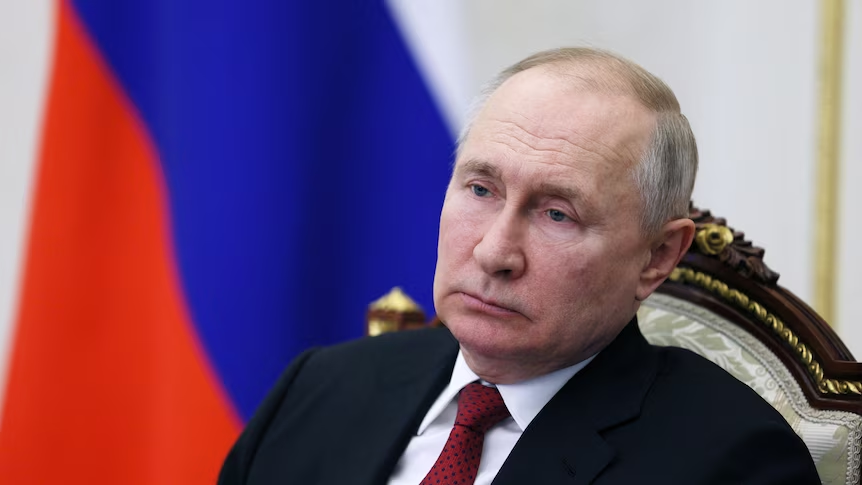Introduction
In a landmark development that underscores the growing strategic and economic partnership between India and Russia, Moscow has officially announced the opening of 1 million job opportunities for Indian workers across multiple sectors. This initiative comes at a crucial time when India is focusing on enhancing employment opportunities for its vast youth population, while Russia seeks to address its labor shortages in industries such as construction, agriculture, healthcare, manufacturing, and technology.
The move is expected to strengthen bilateral ties, boost cross-border collaboration, and open new horizons for Indian professionals seeking overseas employment.
Why Russia Needs Indian Workers
Russia, one of the largest economies and landmasses in the world, is currently facing a labor shortage due to multiple reasons:
- Demographic Decline – Russia’s population has been shrinking due to low birth rates and aging demographics.
- Post-Pandemic Recovery – Many industries are still struggling to regain momentum, requiring a fresh workforce.
- Infrastructure Expansion – Russia has ambitious infrastructure and energy development projects in the pipeline, requiring large-scale manpower.
- Agriculture & Food Security – To ensure food stability, Russia is boosting agricultural production, creating demand for skilled and semi-skilled labor.
By inviting Indian workers, Russia is not only solving its workforce gap but also leveraging India’s skilled and youthful manpower.
Opportunities for Indian Workers in Russia
The 1 million job slots span across diverse industries, offering both skilled and semi-skilled workers opportunities to grow. Key sectors include:
- Construction and Infrastructure – Large-scale projects like smart cities, transport networks, and housing require engineers, architects, masons, electricians, and laborers.
- Healthcare and Nursing – With an aging population, demand for doctors, nurses, and paramedics is on the rise.
- Agriculture and Food Processing – Farm laborers, food technologists, and supply chain experts are required.
- Manufacturing and Engineering – India’s talent in automotive, machinery, and heavy industries fits Russia’s industrial expansion plans.
- IT and Technology – Software engineers, AI specialists, and cybersecurity professionals have growing opportunities as Russia diversifies its tech landscape.
Eligibility Criteria for Indian Applicants
While official guidelines are expected to be released jointly by India and Russia, the general eligibility criteria may include:
- Age Requirement – Workers between 21 to 55 years of age are likely to be considered.
- Skill Certification – Preference will be given to those with technical qualifications or certifications in relevant sectors.
- Language Skills – Basic knowledge of Russian or English may be required depending on the job profile.
- Medical Fitness – Applicants will need to clear health and fitness checks.
- Background Verification – Police verification and legal clearance will be part of the recruitment process.
Benefits for Indian Workers
The initiative brings multiple benefits for Indian workers:
- High Salary Packages compared to domestic wages in similar industries.
- Accommodation and Travel Support offered by many Russian employers.
- Skill Development and Global Exposure enhancing career opportunities.
- Social Security Benefits under Russian labor laws.
- Opportunity to Work in Global Projects across construction, healthcare, and technology sectors.
This move also complements India’s push for global workforce mobility, allowing Indian workers to be recognized worldwide for their skills and discipline.
Impact on India-Russia Relations
The decision to invite 1 million Indian workers goes beyond economics—it’s a diplomatic statement of trust. The impact includes:
- Strengthened Strategic Partnership – India and Russia have long been allies in defense, energy, and space cooperation. Workforce collaboration adds a new dimension.
- Economic Integration – Indian remittances from Russia will boost foreign exchange reserves.
- Cultural Exchange – With more Indians working in Russia, cultural ties will deepen through education, arts, and community development.
- Geopolitical Significance – At a time of global realignments, India’s role in Russia’s economy enhances its international standing.
Challenges Ahead
While the initiative is promising, there are certain challenges:
- Language Barriers – Russian is not widely spoken among Indians, making communication difficult initially.
- Climate Adaptation – Harsh Russian winters may pose difficulties for workers from tropical regions.
- Legal Formalities – Visa processing, work permits, and legal paperwork need streamlining.
- Cultural Adjustment – Workers will need orientation programs to adapt to Russian culture and work ethics.
- Job Security – Workers will need guarantees of long-term contracts and protection against exploitation.
Both governments are expected to collaborate to address these issues before large-scale recruitment begins.
Government-to-Government Collaboration
To ensure the success of this initiative, India and Russia may establish:
- Dedicated Recruitment Agencies – To prevent fraud and ensure transparent hiring.
- Skill Development Programs – Training centers in India to prepare workers with language and technical skills.
- Bilateral Labor Agreement – Ensuring job security, minimum wages, and safe working conditions.
- Helpline and Grievance Redressal – Support centers in Russia for Indian workers.
Long-Term Outlook
This collaboration is not just a short-term labor exchange but a long-term vision for India-Russia partnership. By integrating workforce strategies, India becomes a key human resource provider to one of the world’s largest economies. For Russia, this ensures steady labor supply, while for India, it creates new employment avenues and boosts remittances.
Over the years, this initiative could also inspire similar workforce mobility agreements between India and other nations facing demographic challenges, such as Japan, Germany, and South Korea.
Conclusion
The announcement that Russia will open 1 million job slots for Indian workers is a milestone in global workforce mobility. It highlights how nations can collaborate to solve each other’s challenges—India’s need for employment generation and Russia’s need for skilled manpower.
If implemented with strong bilateral agreements, transparent recruitment, and worker protection mechanisms, this move could pave the way for a new chapter in India-Russia relations, while transforming the lives of millions of Indian families through global opportunities.

